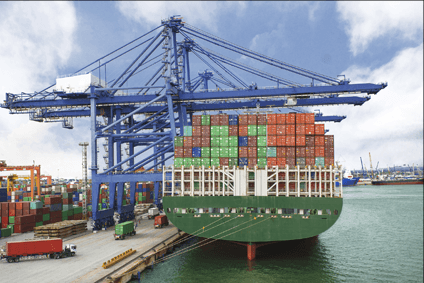
US retailers will soon be held jointly liable if they hire port trucking companies that break California state labour rules under new legislation signed in last week.
Senate Bill 1402, signed in by Governor Jerry Brown and sponsored by State Senator Ricardo Lara, makes importers in California jointly liable for labour violations at trucking providers at the twin Ports of Los Angeles and Long Beach. It is considered the first in the US that attempts to spread such financial liability up the supply chain.

Discover B2B Marketing That Performs
Combine business intelligence and editorial excellence to reach engaged professionals across 36 leading media platforms.
Violations can include include failure to pay wages, imposing unlawful expenses on employees, not providing worker’s compensation insurance and incorrectly classifying employees as independent contractors.
The move follows an investigation by USA Today that found labour abuses at dozens of trucking companies operating out of Los Angeles and Long Beach – the country’s two largest ports, through which more than 40% of US shipping-container traffic flows.
The port drayage industry employs an estimated 25,000 drivers who move freight between California’s ports and distribution centres. They are a largely immigrant workforce and particularly vulnerable to labour exploitation.
The investigation found that “port trucking companies in Southern California have spent the past decade forcing drivers to finance their own trucks by taking on debt they could not afford”. There were instances where drivers “end up owing money to their employers – essentially working for free”.

US Tariffs are shifting - will you react or anticipate?
Don’t let policy changes catch you off guard. Stay proactive with real-time data and expert analysis.
By GlobalDataAccording to the Legislative Counsel’s Digest, a common practice is for a company that owns port drayage trucks to enter into a sublease agreement with drivers, with the promise they will own the truck someday. Drivers can be terminated at any time and lose the money they thought they were paying toward the truck. Companies deduct money from driver paychecks for business expenses that lead to poverty wages or to the driver owing the company money.
Drayage drivers at California ports are routinely misclassified as independent contractors when they in fact work as employees under California and federal labour laws. A recent report found that two-thirds of California port drayage drivers fall under this category, and rampant misclassification of drivers contributes to wage theft and leaves drivers in a cycle of poverty.
The mistreatment of port drayage drivers has been known for more than a decade, and the Ports of Los Angeles and Long Beach attempted to address misclassification of drayage drivers in 2008 through their ‘Clean Air Action Plan’ by requiring drivers to be classified as employees. The 9th Circuit Court of Appeals struck down that requirement.
“Port drivers are a critical link in the global supply chain and they need to share the benefits of this economic engine,” the Legislative Counsel says.
“Customers of port drayage are some of the world’s largest retail and manufacturing companies. After more than a decade of rulings, media stories, and independent reports, they should be aware of the widespread labour violations in the drayage industry.
“Holding customers of trucking companies jointly liable for future labour law violations by port drayage motor carriers who they engage, where the customer has received advance notice of their record of unsatisfied judgments for labour law violations, will exert pressure across the supply chain to protect drayage drivers from further exploitation. Customers have the market power to exert meaningful change in the port drayage industry that has eluded California drivers for more than a decade.”
The Retail Industry Leaders Association did not return a request for comment at the time of going to press.





